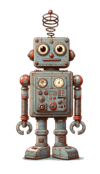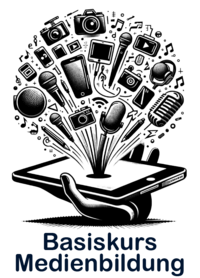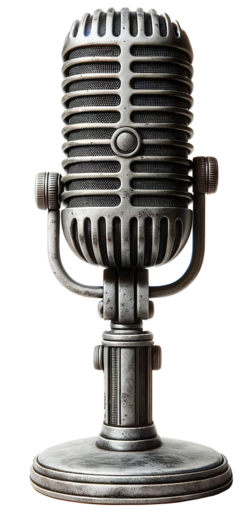Was passiert in unserem Gehirn bei Angst?: Unterschied zwischen den Versionen
Glanz (Diskussion | Beiträge) (Die Seite wurde neu angelegt: „{{:MOOCit - Oben}} 350px|center {| align=center {{:D-Tab}} '''Angst''' {{o}} Amygdala {{o}} Hypothalamus {{o}} HPA-Achse {{o}} Adrenalin {{o}} Cortisol |} {{:BRK}} = Einleitung = In diesem aiMOOC erforschen wir die faszinierenden Prozesse, die in unserem Gehirn ablaufen, wenn wir Angst empfinden. Angst ist eine grundlegende Emotion, die sowohl von psychologischen als auch vo…“) |
Glanz (Diskussion | Beiträge) Keine Bearbeitungszusammenfassung |
||
| Zeile 145: | Zeile 145: | ||
[[Kategorie:Neurowissenschaften]] | [[Kategorie:Neurowissenschaften]] | ||
= | {{:MOOCit - Oben}} | ||
= Introduction = | |||
Anxiety is a common and complex response in the human body. This aiMOOC delves into the neurobiological and psychological mechanisms at play when fear and anxiety manifest. Understanding these mechanisms is crucial for managing anxiety and recognizing its impact on our behavior and mental health. We'll explore how the brain's various regions interact during anxiety episodes, the role of neurotransmitters, and how these responses can be influenced by factors such as genetics, environment, and past experiences. | |||
{{:BRK}} | |||
= What Happens in Our Brain During Anxiety? = | |||
{{:BRK}} | |||
== Brain Regions Involved == | |||
Several key areas of the brain are engaged during episodes of anxiety: | |||
{{o}} [[Amygdala]]: This region plays a central role in processing emotions, particularly fear and anxiety. It triggers the body's "fight or flight" response. | |||
{{o}} [[Hippocampus]]: The hippocampus is involved in memory formation and recall. It interacts with the amygdala, often associating past traumatic or fearful experiences with present circumstances. | |||
{{o}} [[Prefrontal Cortex]]: This area helps regulate emotions and decision-making. In cases of anxiety, its function can be suppressed, leading to difficulty in controlling emotional responses. | |||
{{:BRK}} | |||
== Neurotransmitters and Hormones == | |||
Anxiety is also linked to imbalances in neurotransmitters and hormones: | |||
{{o}} [[Cortisol]]: Often referred to as the "stress hormone," cortisol levels rise during anxiety, leading to symptoms such as increased heart rate and muscle tension. | |||
{{o}} [[Serotonin]]: Low serotonin levels are associated with mood disorders, including anxiety and depression. | |||
{{o}} [[Dopamine]]: Imbalances in dopamine can affect mood and behavior, potentially contributing to anxiety. | |||
{{:BRK}} | |||
== Causes of Anxiety == | |||
Several factors can trigger anxiety: | |||
{{o}} [[Genetics]]: Family history can play a role, suggesting a genetic predisposition to anxiety disorders. | |||
{{o}} [[Environment]]: Stressful environments or traumatic events can trigger or exacerbate anxiety. | |||
{{o}} [[Lifestyle]]: Poor diet, lack of exercise, and unhealthy habits can contribute to anxiety by affecting brain chemistry. | |||
{{:BRK}} | |||
= Interactive Exercises = | |||
{{:BRK}} | |||
== Quiz: Test Your Knowledge == | |||
{{:Multiple-Choice Anfang}} | |||
'''Which brain region is primarily responsible for processing emotions such as fear and anxiety?''' | |||
(Amygdala) | |||
(!Hippocampus) | |||
(!Prefrontal Cortex) | |||
(!Thalamus) | |||
'''What hormone is commonly known as the "stress hormone"?''' | |||
(Cortisol) | |||
(!Serotonin) | |||
(!Adrenaline) | |||
(!Dopamine) | |||
'''Which neurotransmitter's imbalance is associated with both anxiety and depression?''' | |||
(Serotonin) | |||
(!Cortisol) | |||
(!Adrenaline) | |||
(!Dopamine) | |||
'''Which brain region helps regulate emotions and decision-making, which may be suppressed during anxiety?''' | |||
(Prefrontal Cortex) | |||
(!Amygdala) | |||
(!Hippocampus) | |||
(!Cerebellum) | |||
'''What role does the hippocampus play in anxiety?''' | |||
(It helps associate past experiences with current situations.) | |||
(!It regulates the fight-or-flight response.) | |||
(!It directly influences neurotransmitter levels.) | |||
(!It controls cortisol production.) | |||
'''What is a common factor that can trigger anxiety?''' | |||
(Stressful environments or traumatic events) | |||
(!Lack of sleep) | |||
(!Excessive physical exercise) | |||
(!Balanced diet) | |||
'''Which of the following is a symptom of high cortisol levels during anxiety?''' | |||
(Increased heart rate) | |||
(!Improved mood) | |||
(!Reduced stress) | |||
(!Balanced dopamine levels) | |||
'''Which neurotransmitter's imbalance can affect mood and behavior, contributing to anxiety?''' | |||
(Dopamine) | |||
(!Cortisol) | |||
(!Adrenaline) | |||
(!GABA) | |||
'''What lifestyle factor can contribute to anxiety by affecting brain chemistry?''' | |||
(Unhealthy habits) | |||
(!Genetics) | |||
(!Lack of family history) | |||
(!Balanced neurotransmitters) | |||
'''How can anxiety be affected by genetics?''' | |||
(A genetic predisposition can increase the likelihood of anxiety disorders.) | |||
(!It has no impact on anxiety.) | |||
(!It directly influences neurotransmitter levels.) | |||
(!It prevents anxiety disorders.) | |||
{{:Multiple-Choice Ende}} | |||
<br> | |||
{{:BRK}} | |||
== Memory == | |||
<div class="memo-quiz"> | |||
{| | |||
|- | |||
| Amygdala || Emotions | |||
|- | |||
| Cortisol || Stress Hormone | |||
|- | |||
| Serotonin || Mood Balance | |||
|- | |||
| Prefrontal Cortex || Emotion Regulation | |||
|- | |||
| Hippocampus || Memory Recall | |||
|} | |||
{{:Memo Ende}} | |||
<br> | |||
{{:BRK}} | |||
== Crossword Puzzle == | |||
<div class="kreuzwort-quiz"> | |||
{| | |||
|- | |||
| Amygdala || Which region processes emotions like fear and anxiety? | |||
|- | |||
| Cortisol || What hormone is known as the "stress hormone"? | |||
|- | |||
| Hippocampus || Which region associates past experiences with current situations? | |||
|- | |||
| Serotonin || Which neurotransmitter is linked to mood disorders? | |||
|- | |||
| PrefrontalCortex || Which region helps regulate emotions and decision-making? | |||
|} | |||
{{:Kreuzwort Ende}} | |||
<br> | |||
<br> | |||
= Open Tasks = | |||
{{:BRK}} | |||
=== Easy === | |||
{{o}} [[Amygdala]]: Research how the amygdala contributes to emotional processing, and write a short summary. | |||
{{o}} [[Cortisol]]: Discuss how cortisol impacts the body during anxiety. | |||
{{o}} [[Serotonin]]: Explore how serotonin imbalances can lead to anxiety and depression. | |||
=== Standard === | |||
{{o}} [[BrainRegions]]: Create a presentation on how different brain regions contribute to anxiety. | |||
{{o}} [[Neurotransmitters]]: Write a report on how neurotransmitter imbalances impact anxiety disorders. | |||
{{o}} [[LifestyleFactors]]: Examine how lifestyle factors contribute to anxiety and suggest ways to mitigate them. | |||
=== Difficult === | |||
{{o}} [[Genetics]]: Write a detailed report on the role of genetics in anxiety disorders. | |||
{{o}} [[Neurobiology]]: Compare and contrast the neurobiological mechanisms behind anxiety and other mental health conditions. | |||
{{o}} [[Interventions]]: Investigate therapeutic interventions that address both the biological and psychological aspects of anxiety. | |||
{{:Offene Aufgabe - MOOC erstellen}} | |||
= Learning Control = | |||
{{:BRK}} | |||
{{o}} [[BiologicalMechanisms]]: Compare the biological mechanisms of anxiety to those of other mental health disorders. | |||
{{o}} [[LifestyleChanges]]: Propose lifestyle changes that can help mitigate anxiety symptoms. | |||
{{o}} [[TherapeuticInterventions]]: Analyze how therapeutic interventions can influence both biological and psychological factors of anxiety. | |||
{{o}} [[EnvironmentalTriggers]]: Discuss how environmental triggers can lead to anxiety and suggest strategies to manage them. | |||
{{o}} [[BrainRegionInteractions]]: Explore how different brain regions interact during an anxiety response. | |||
<br> | |||
<br> | |||
= Links = | |||
{| align=center | |||
{{:D-Tab}} | |||
'''[[Anxiety]]''' | |||
{{o}} [[Amygdala|Amygdala]] | |||
{{o}} [[Cortisol|Cortisol]] | |||
{{o}} [[Hippocampus|Hippocampus]] | |||
{{o}} [[Neurotransmitters|Neurotransmitters]] | |||
|} | |||
[[Kategorie:Psychology]] | |||
[[Kategorie:Neuroscience]] | |||
= Sharing - Discussion - Rating = | |||
{{:Teilen - MOOCit}} | {{:Teilen - MOOCit}} | ||
[[Kategorie:AI_MOOC]] [[Kategorie:GPT aiMOOC]] [[Kategorie:AIMOOC mit Medien]] | |||
[[Kategorie:AI_MOOC]] [[Kategorie:GPT aiMOOC]] [[Kategorie:AIMOOC mit Medien]] | [[Kategorie:AI_MOOC]] [[Kategorie:GPT aiMOOC]] [[Kategorie:AIMOOC mit Medien]] | ||
Aktuelle Version vom 30. April 2024, 21:17 Uhr

Was passiert in unserem Gehirn bei Angst?
Einleitung
In diesem aiMOOC erforschen wir die faszinierenden Prozesse, die in unserem Gehirn ablaufen, wenn wir Angst empfinden. Angst ist eine grundlegende Emotion, die sowohl von psychologischen als auch von physiologischen Mechanismen im Gehirn gesteuert wird. Durch das Verständnis dieser Mechanismen können wir besser nachvollziehen, wie Angst unsere Entscheidungen, unser Verhalten und unser Wohlbefinden beeinflusst. Dieser Kurs bietet eine tiefgehende Untersuchung der Neurobiologie der Angst und ist mit interaktiven Aufgaben angereichert, um das Gelernte praktisch anzuwenden.
Was passiert im Gehirn bei Angst?
Angst ist eine Reaktion unseres Körpers auf wahrgenommene Gefahren oder Bedrohungen, die tief in unserem Gehirn verwurzelt ist. Die primären Gehirnstrukturen, die bei der Angstreaktion beteiligt sind, umfassen die Amygdala, den Hypothalamus und den präfrontalen Kortex. Diese Strukturen arbeiten zusammen, um die physiologischen und emotionalen Reaktionen zu steuern, die wir als Angst erleben.
Die Amygdala
Die Amygdala spielt eine zentrale Rolle bei der Verarbeitung von Emotionen, insbesondere bei Angst. Sie bewertet eingehende Reize auf ihre emotionale Bedeutung hin und löst eine schnelle Angstreaktion aus, falls sie eine Bedrohung erkennt. Dies führt zur Freisetzung von Stresshormonen wie Adrenalin und Cortisol, die den Körper in einen Alarmzustand versetzen, um entweder zu kämpfen oder zu fliehen.
Der Hypothalamus
Der Hypothalamus ist entscheidend für die Aktivierung der Hypothalamus-Hypophysen-Nebennieren-Achse (HPA-Achse), die an der Stressreaktion beteiligt ist. Er sendet Signale an die Nebennieren, um Stresshormone freizusetzen, die dabei helfen, den Körper auf schnelles Handeln vorzubereiten.
Der präfrontale Kortex
Der präfrontale Kortex ist für die bewusste Regulation von Emotionen zuständig. Er hilft uns, unsere Angstreaktionen zu modulieren und zu entscheiden, ob eine wahrgenommene Bedrohung real ist oder nicht. Der präfrontale Kortex kann die Amygdala beruhigen und dabei helfen, eine übermäßige Angstreaktion zu verhindern.
Interaktive Aufgaben
Quiz: Teste Dein Wissen
Was ist die Hauptfunktion der Amygdala bei Angst? (Aktivierung von Stressreaktionen durch Freisetzung von Hormonen) (!Verarbeitung von visuellen Informationen) (!Regulierung des Blutdrucks) (!Speicherung von Langzeitgedächtnisinhalten)
Welches Hormon wird nicht in Reaktion auf Angst freigesetzt? (Insulin) (!Adrenalin) (!Cortisol) (!Noradrenalin)
Welche Rolle spielt der Hypothalamus bei der Angstreaktion? (Initiiert die Freisetzung von Stresshormonen) (!Hemmt die Freisetzung von Stresshormonen) (!Steigert die Muskelaktivität direkt) (!Fördert die Entspannung)
Wie hilft der präfrontale Kortex, die Angst zu kontrollieren? (Moduliert die Reaktion der Amygdala und bewertet Bedrohungen) (!Löst direkte physische Reaktionen auf Angst aus) (!Erzeugt Emotionen) (!Speichert emotionale Erinnerungen)
Welche Aussage über Angst ist falsch? (Angstreaktionen sind ausschließlich negativ und schädlich) (!Angst hat eine Schutzfunktion, die den Körper auf Bedrohungen vorbereitet) (!Stresshormone werden als Teil der Angstreaktion freigesetzt) (!Der präfrontale Kortex kann die Amygdala beruhigen)
Memory
| Amygdala | Verarbeitung von Emotionen |
| Hypothalamus | Aktivierung der HPA-Achse |
| Präfrontaler Kortex | Bewusste Emotionsregulation |
| Adrenalin | Hormon der Angstreaktion |
| HPA-Achse | Stressreaktion |
Kreuzworträtsel
| Amygdala | Welche Gehirnstruktur bewertet emotionale Reize und löst eine schnelle Angstreaktion aus? |
| Stresshormon | Wie nennt man die Hormone, die während einer Angstreaktion freigesetzt werden? |
| Nebennieren | Welche Drüsen setzen die Stresshormone bei der Angstreaktion frei? |
| HPA-Achse | Welcher Mechanismus wird durch den Hypothalamus aktiviert, um Stresshormone freizusetzen? |
Offene Aufgaben
Leicht
- Schreibe einen kurzen Text über eine Situation, in der du Angst verspürt hast, und beschreibe, wie dein Körper darauf reagiert hat.
- Erstelle eine Liste von mindestens fünf Stressauslösern und erkläre, wie sie deine Angst beeinflussen.
- Recherchiere und fasse in einem kurzen Text zusammen, wie Entspannungstechniken helfen können, Angst abzubauen.
Standard
- Erstelle ein Poster, das die Funktionen der Amygdala, des Hypothalamus und des präfrontalen Kortex bei der Angstreaktion darstellt.
- Untersuche, wie die HPA-Achse funktioniert, und erstelle eine Präsentation darüber.
- Analysiere, wie verschiedene Menschen auf Angst reagieren, indem du Interviews durchführst und die Ergebnisse vergleichst.
Schwer
- Schreibe eine wissenschaftliche Arbeit über die Neurobiologie der Angst und beziehe aktuelle Forschungsergebnisse ein.
- Entwickle ein Projekt, das zeigt, wie therapeutische Ansätze Angst auf neurologischer Ebene behandeln können.
- Untersuche, wie verschiedene Kulturen mit Angst umgehen und welche neurologischen Mechanismen ihnen zugrunde liegen.

Lernkontrolle
- Vergleiche die Funktionen der Amygdala, des Hypothalamus und des präfrontalen Kortex und ihre jeweiligen Rollen bei der Angstreaktion.
- Untersuche die physiologischen und emotionalen Auswirkungen der HPA-Achse auf den menschlichen Körper.
- Diskutiere, wie Stresshormone die Angstreaktion beeinflussen und welche Folgen eine langfristige Erhöhung dieser Hormone hat.
- Analysiere die Rolle der bewussten Emotionsregulation bei der Bewältigung von Angst und wie der präfrontale Kortex dabei hilft.
- Erkläre, warum die Angstreaktion eine schützende Funktion hat und in welchen Fällen sie schädlich sein kann.
Links

Was passiert in unserem Gehirn bei Angst?
Introduction
Anxiety is a common and complex response in the human body. This aiMOOC delves into the neurobiological and psychological mechanisms at play when fear and anxiety manifest. Understanding these mechanisms is crucial for managing anxiety and recognizing its impact on our behavior and mental health. We'll explore how the brain's various regions interact during anxiety episodes, the role of neurotransmitters, and how these responses can be influenced by factors such as genetics, environment, and past experiences.
What Happens in Our Brain During Anxiety?
Brain Regions Involved
Several key areas of the brain are engaged during episodes of anxiety:
- Amygdala: This region plays a central role in processing emotions, particularly fear and anxiety. It triggers the body's "fight or flight" response.
- Hippocampus: The hippocampus is involved in memory formation and recall. It interacts with the amygdala, often associating past traumatic or fearful experiences with present circumstances.
- Prefrontal Cortex: This area helps regulate emotions and decision-making. In cases of anxiety, its function can be suppressed, leading to difficulty in controlling emotional responses.
Neurotransmitters and Hormones
Anxiety is also linked to imbalances in neurotransmitters and hormones:
- Cortisol: Often referred to as the "stress hormone," cortisol levels rise during anxiety, leading to symptoms such as increased heart rate and muscle tension.
- Serotonin: Low serotonin levels are associated with mood disorders, including anxiety and depression.
- Dopamine: Imbalances in dopamine can affect mood and behavior, potentially contributing to anxiety.
Causes of Anxiety
Several factors can trigger anxiety:
- Genetics: Family history can play a role, suggesting a genetic predisposition to anxiety disorders.
- Environment: Stressful environments or traumatic events can trigger or exacerbate anxiety.
- Lifestyle: Poor diet, lack of exercise, and unhealthy habits can contribute to anxiety by affecting brain chemistry.
Interactive Exercises
Quiz: Test Your Knowledge
Which brain region is primarily responsible for processing emotions such as fear and anxiety? (Amygdala) (!Hippocampus) (!Prefrontal Cortex) (!Thalamus)
What hormone is commonly known as the "stress hormone"? (Cortisol) (!Serotonin) (!Adrenaline) (!Dopamine)
Which neurotransmitter's imbalance is associated with both anxiety and depression? (Serotonin) (!Cortisol) (!Adrenaline) (!Dopamine)
Which brain region helps regulate emotions and decision-making, which may be suppressed during anxiety? (Prefrontal Cortex) (!Amygdala) (!Hippocampus) (!Cerebellum)
What role does the hippocampus play in anxiety? (It helps associate past experiences with current situations.) (!It regulates the fight-or-flight response.) (!It directly influences neurotransmitter levels.) (!It controls cortisol production.)
What is a common factor that can trigger anxiety? (Stressful environments or traumatic events) (!Lack of sleep) (!Excessive physical exercise) (!Balanced diet)
Which of the following is a symptom of high cortisol levels during anxiety? (Increased heart rate) (!Improved mood) (!Reduced stress) (!Balanced dopamine levels)
Which neurotransmitter's imbalance can affect mood and behavior, contributing to anxiety? (Dopamine) (!Cortisol) (!Adrenaline) (!GABA)
What lifestyle factor can contribute to anxiety by affecting brain chemistry? (Unhealthy habits) (!Genetics) (!Lack of family history) (!Balanced neurotransmitters)
How can anxiety be affected by genetics? (A genetic predisposition can increase the likelihood of anxiety disorders.) (!It has no impact on anxiety.) (!It directly influences neurotransmitter levels.) (!It prevents anxiety disorders.)
Memory
| Amygdala | Emotions |
| Cortisol | Stress Hormone |
| Serotonin | Mood Balance |
| Prefrontal Cortex | Emotion Regulation |
| Hippocampus | Memory Recall |
Crossword Puzzle
| Amygdala | Which region processes emotions like fear and anxiety? |
| Cortisol | What hormone is known as the "stress hormone"? |
| Hippocampus | Which region associates past experiences with current situations? |
| Serotonin | Which neurotransmitter is linked to mood disorders? |
| PrefrontalCortex | Which region helps regulate emotions and decision-making? |
Open Tasks
Easy
- Amygdala: Research how the amygdala contributes to emotional processing, and write a short summary.
- Cortisol: Discuss how cortisol impacts the body during anxiety.
- Serotonin: Explore how serotonin imbalances can lead to anxiety and depression.
Standard
- BrainRegions: Create a presentation on how different brain regions contribute to anxiety.
- Neurotransmitters: Write a report on how neurotransmitter imbalances impact anxiety disorders.
- LifestyleFactors: Examine how lifestyle factors contribute to anxiety and suggest ways to mitigate them.
Difficult
- Genetics: Write a detailed report on the role of genetics in anxiety disorders.
- Neurobiology: Compare and contrast the neurobiological mechanisms behind anxiety and other mental health conditions.
- Interventions: Investigate therapeutic interventions that address both the biological and psychological aspects of anxiety.

Learning Control
- BiologicalMechanisms: Compare the biological mechanisms of anxiety to those of other mental health disorders.
- LifestyleChanges: Propose lifestyle changes that can help mitigate anxiety symptoms.
- TherapeuticInterventions: Analyze how therapeutic interventions can influence both biological and psychological factors of anxiety.
- EnvironmentalTriggers: Discuss how environmental triggers can lead to anxiety and suggest strategies to manage them.
- BrainRegionInteractions: Explore how different brain regions interact during an anxiety response.
Links
Sharing - Discussion - Rating
Schulfach+

aiMOOCs



aiMOOC Projekte



KI-STIMMEN: WAS WÜRDE ... SAGEN? |
|
|






























